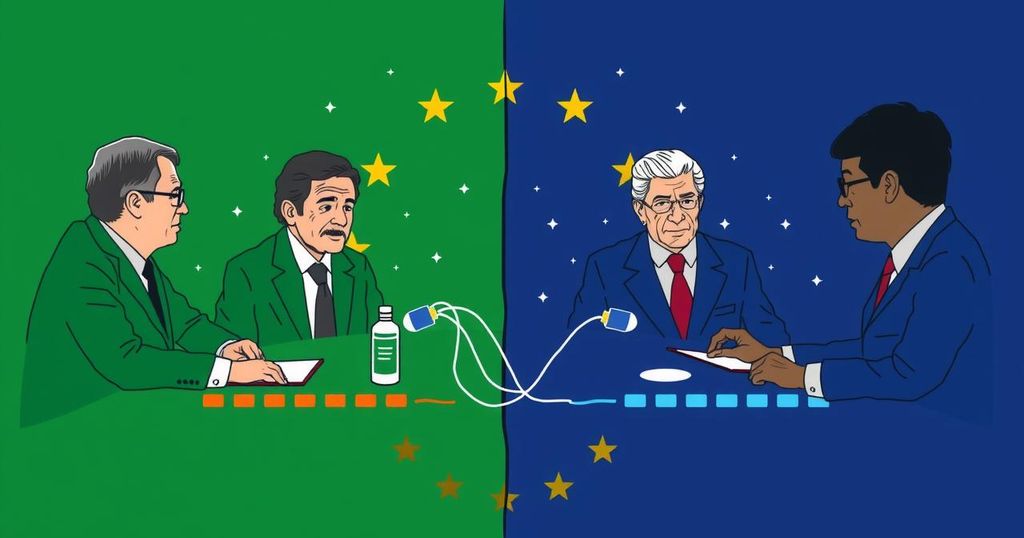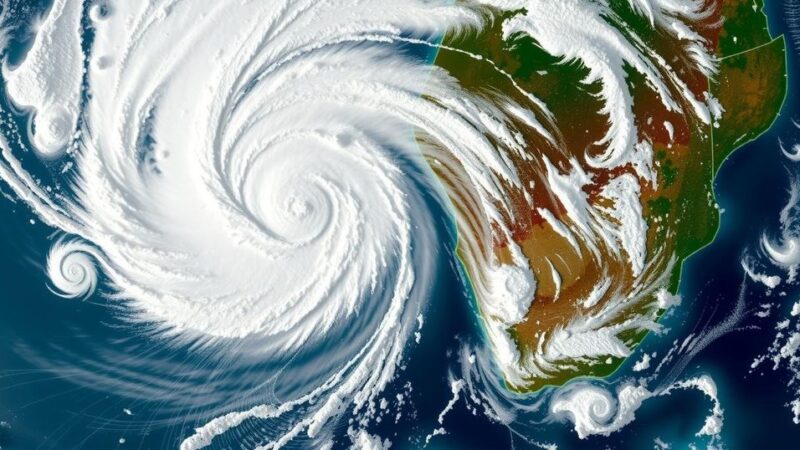At COP29 in Azerbaijan, leaders presented conflicting strategies for addressing climate change as emissions reached record highs. A report recommended achieving net-zero carbon by the late 2030s, prompting urgent calls for action, particularly from vulnerable nations. The negotiations on climate finance revealed significant disparities in funding commitments, highlighting the challenges ahead in creating equitable solutions for climate adaptation and mitigation.
Leaders convened in Baku for COP29, where a new report from the Global Carbon Project emphasized the urgent need for global carbon neutrality, suggesting a target date in the late 2030s instead of 2050. This dire warning arose amidst an increase in carbon emissions from fossil fuels, which reached unprecedented levels in 2023. Azerbaijan’s chief negotiator, Yalchin Rafiyev, called for immediate action, underscoring the shrinking time frame to achieve the Paris Agreement’s climate goals. While some leaders advocated for a pragmatic approach to fossil fuel reliance, others from nations seriously impacted by climate change, like Tuvalu’s Prime Minister Feleti Penitala Teo, insisted that immediate action was critical to avert disaster. Furthermore, a draft proposal for climate finance highlighted a significant gap between the funding needed by developing nations and what wealthier countries currently contribute, complicating negotiations for equitable funding arrangements.
The COP29 talks represent a critical juncture in international climate action, as nations grapple with the consequences of climate change and the need for financial support for vulnerable states. The backdrop of rising carbon emissions despite existing agreements raises questions about political commitment and the effectiveness of current measures. The growing partisan divide over climate strategies, particularly in light of shifting political landscapes, most notably with the potential return of a climate-skeptical U.S. administration, complicates efforts to forge a united response to climate challenges.
The ongoing COP29 negotiations illustrate the stark divisions among global leaders regarding climate policy and the urgent need for climate finance. As emissions continue to rise, the call for immediate action is more pressing than ever, particularly for those nations severely affected by climate impacts. The gap in financial commitments from wealthier nations must be addressed to support sustainable transitions in developing countries, emphasizing that the time for decisive action is now.
Original Source: www.rfi.fr







